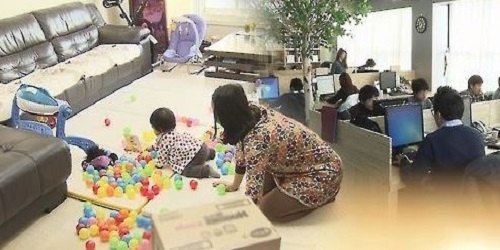State subsidies for childbirth and child rearing have helped increase South Korea's birthrate, but the effect is weakening over time, a report said Wednesday.
According to the report from the Center for Economic Catch-up, subsidies can take credit for 0.122 of 0.163, or 75 percent, increase in the nation's birthrate between 2005 and 2015. The birthrate during the period rose from 1.076 to 1.239.
 |
(Yonhap) |
Such effects, however, are waning after policy changes from 2012-2013 to pay a uniform amount to all households, the report said. Before the changes, families received different sums depending on the age of the child and family income. The report argued that the policy began to lose effect after families financially less sensitive to or encouraged by government help began to receive an equal amount of subsidies.
Child-rearing subsidies, introduced in 2009, also had positive impact on the birthrate, the report said, especially in encouraging mothers in their 30s to have a second or third children.
Some 3.3 trillion won ($2.95 billion) of the government budget went to the subsidies last year, equal to 20.2 percent of the birthrate budget. Regional governments have also pitched in for a total of 6.5 trillion won.
"Large amount of the budget is being spent on childcare, but the task of solving the weakening effect remains," the report said. "We need to review what kind of results the childcare policies have on the different segments of society and whether the current system of assistance is appropriate in order to improve policy effectiveness." (Yonhap)




![[Herald Interview] 'Trump will use tariffs as first line of defense for American manufacturing'](http://res.heraldm.com/phpwas/restmb_idxmake.php?idx=644&simg=/content/image/2024/11/26/20241126050017_0.jpg)

![[Health and care] Getting cancer young: Why cancer isn’t just an older person’s battle](http://res.heraldm.com/phpwas/restmb_idxmake.php?idx=644&simg=/content/image/2024/11/26/20241126050043_0.jpg)

